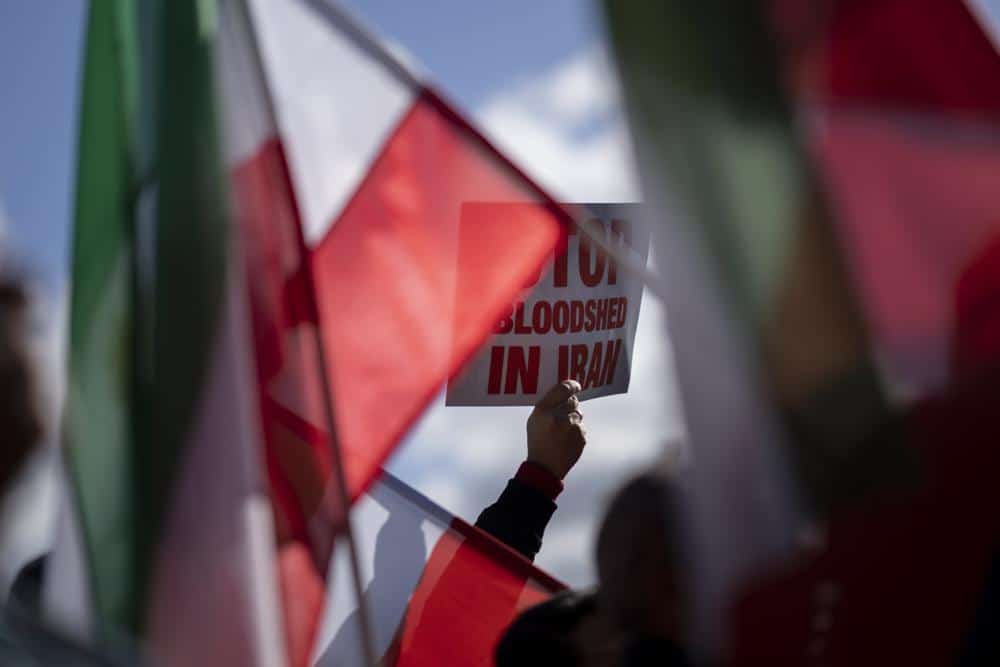The US State Department is exploring ways to work with American technology firms to circumvent Iran’s internet censorship to enable fact-based information to reach the Iranian people, according to a senior official.
“Iran’s continued violent crackdown on peaceful protesters is an affront to human rights,” US Deputy Secretary of State Wendy Sherman tweeted on Wednesday.
“I spoke with major US tech firms and urged them to utilise general licence D-2 to provide the Iranian people with additional services and communications tools.”
The licence allows personal communication tools such as mobile phones, personal computing equipment, and other related software and hardware to be sold and distributed in Iran without violating US sanctions.
The D-1 licence has been updated to offer additional support for the tools that Iranians use to communicate.
The Treasury said that providing help to Iranian protesters “in resisting repressive internet censorship and surveillance tools used by the Iranian regime” is the goal.
The firm said that tech support for such services will include social media platforms, video conferencing, and cloud-based services, as well as communication tools such as online maps, e-gaming, e-learning platforms, and automated translation, among others.
Human rights have been violated in Iran as a result of the violent suppression of nonviolent protesters.
Iranian rights and cyber activists say the Iranian government is working to restrict internet access and mobile broadband connections in order to censor information and make it more difficult for domestic protesters to report on the government’s continuing repression to the outside world.
39 rights organisations have petitioned Iran to reopen the web and the International Telecommunication Union (ITU), of which Iran is a signatory, to condemn Iran’s communications blockade.
Access Now, an internet rights group, supported the modification of US sanctions.
“Now, the burden falls on US companies — the tech sector, as well as financial institutions and other transaction processors — to comply, and not overcomply,” said Access Now’s general counsel Peter Micek. “Corporate overcompliance with Iran sanctions deprives vulnerable and marginalised people of the goods and services they need to stay safe and active in defence of human rights.”
Iran Human Rights (IHR), based in Norway, has updated the nationwide death toll from the protests against the regime to 201.
Iran has repeatedly claimed, without providing supporting proof, that foreign powers and enemies are behind the protests.
Iran’s leaders are once again charging that the Islamic Republic’s enemies are fomenting “street disturbances.”
The act of the enemy, such as propaganda, trying to influence people, creating excitement, encouraging and even teaching people how to make incendiary devices, is now fully understood,” he said in a statement published by state media.
The morality police’s custody of Mahsa Amini, a 22-year-old woman, resulted in her death in mid-September, sparking protests.
The morality police said she had been detained for not adhering to the country’s strict Islamic dress code.
When asked on Wednesday if the United States was interested in pursuing talks to renew the Iran nuclear accord, State Department spokesman Ned Price said “that is not our priority right now.”
Image Credit: AP Photo/Peter Dejong



















